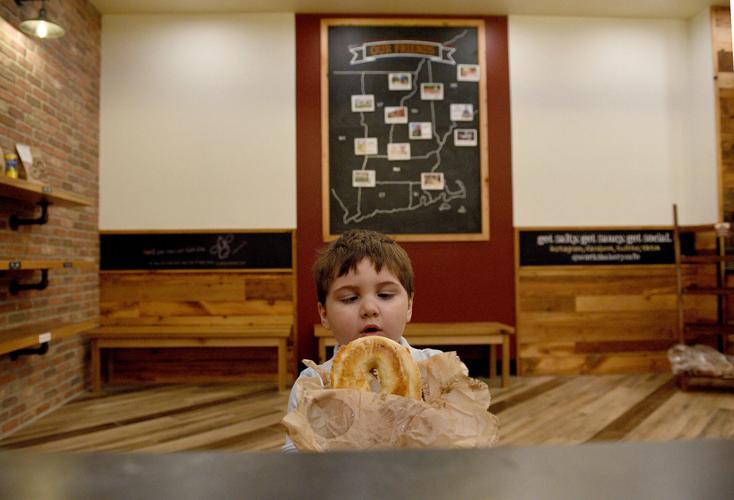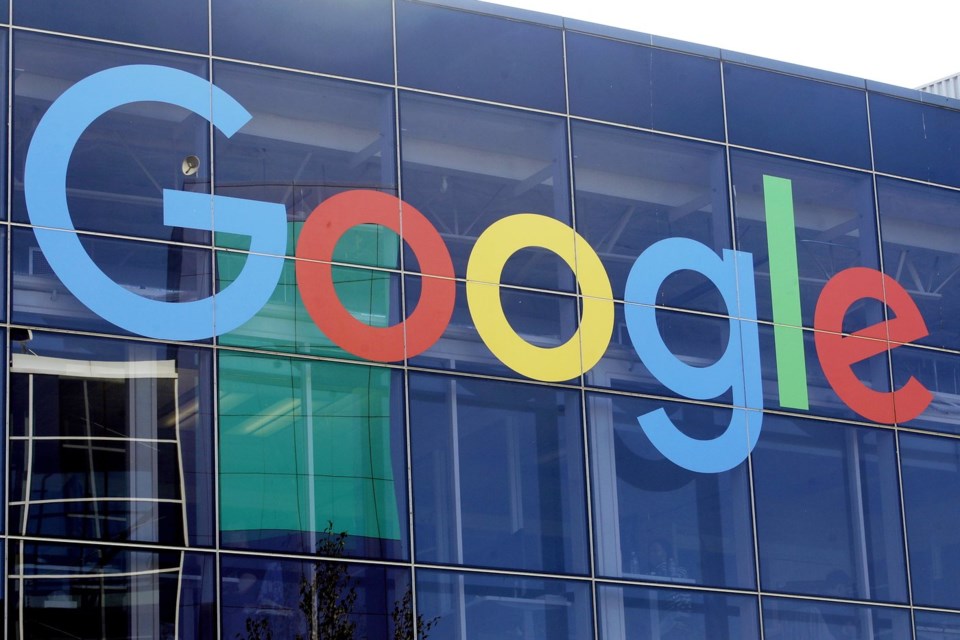The eyes and ears of Colorado Springs' north side will be on Ford Amphitheater on Wednesday night. The audience at the amphitheater will be there to see Jason Isbell and the 400 Unit perform, but even more people will be checking whether the additional sound monitoring and tweaks the amphitheater made for the 2025 concert season will address the noise complaints that poured in last year. The 8,000-seat amphitheater was opened last August by the Colorado Springs-based entertainment company VENU.
The outdoor arena is blocks away from VENU’s Phil Long Music Hall at Bourbon Brothers. The city received more than 650 complaints about noise pollution during the first few weeks after the concerts began. Hundreds of residents attended in-person meetings with the city and VENU arguing for stricter limits on the noise hardship permit Ford received and the In response, the city and VENU announced a series of changes at the beginning of the year.

The noise-hardship permit issued for loud events in the city was revised to only allow violations in the Polaris Pointe mixed-use business area. The amphitheater built new sound walls, tweaked its stereos and added three new noise monitoring stations in nearby neighborhoods. Jerry McLaughlin leads the Sun Hills Home Owner’s Association, which covers 148 homes north of the amphitheater in unincorporated El Paso County.
McLaughlin’s home was about 2 miles from the amphitheater but, because he is at a higher elevation, he said the concert noise carried over many nights last fall. McLaughlin liked that the venue was making efforts to address his issues with the sound but was prepared for the improvements to fall short. "I can't go there in good conscience until they fix it.
I don't want it shut down and the people in Sun Hills don't want it shut. We just want the sound reduced," McLaughlin said. VENU and city officials were cautiously optimistic that the new approach this year would be an improvement.
"Regardless of how we got here and how we move forward, this is an incredible place to be. And we are committed to making this a place everyone can love," VENU spokesperson Chloe Hoeft said. During a tour in early April, Ford Amphitheater was deep in construction.
A new section of fire-pit suites and an exclusive clubhouse at the back of the theater were expected to open in June. Between the amphitheater and the parking lot was Roth’s Seafood and Chop House restaurant, which would open in the fall. The immediate priority were the sound dampening walls under construction set to be finished by the end of the month.
The 28-foot-tall noise walls extend from the back seating area over the north and south entrances to the venue. Carved into the middle of the new walls was what Hoeft described as a "sound tunnel," where crowds of audience members or food trucks could enter the amphitheater and concert noise would potentially be funneled out. “Sound wants to leave through the back.
If you build a wall with a hole in it, the sound will be funneled through the hole,” Hoeft said. Less visible were the improvements Hoeft outlined to the sound system. The speakers were mounted higher in the scaffolding and angled down to focus the sound into the audience.
Technical changes to give the sound crews more precise control. Murray Relf lives just over a mile from the amphitheater in the Northgate Heights neighborhood. Relf moved to Colorado Springs in 2022 but was already in the process of moving away because of the noise issues.
The amphitheater’s volume last year depended on the show, but Relf said the noise at street level for most concerts was over 50 decibels. Without the broader hardship permit issued last year, those levels would have violated the city’s noise ordinance after 7 p.m.
The loudest shows last year increased the sound inside his house to around 42 decibels. That’s around the level of a whispered conversation or the background hum of a refrigerator — completely within the city’s noise laws but still problematic for Relf. “If somebody came into your house and carried on a quiet conversation you didn’t want for seven hours, you wouldn’t like it," Relf said.
"That comparison is a misreading of how loud it feels.” A few blocks closer to Ford in the Northgate neighborhood, a white tube and round, black microphone are perched on top of a streetlight. The microphone is one of three additional noise-monitoring stations VENU was required to add ahead of the concert season.
The City Council requested last year that two monitoring stations be added to monitor sound levels. Relf and other residents pointed out that those monitors were on top of Polaris Pointe businesses and adjacent to restaurants with exterior speakers. The extra background noise made them unrepresentative of the neighborhood experience, residents said.
Travis Easton, deputy chief of staff for Mayor Yemi Mobolade, chose possible locations for the three new monitors that were in quieter neighborhoods to the north, east and south of the amphitheater. Easton said that VENU gave no pushback to the suggested locations. The sound monitors are owned by VENU and will provide real-time data to the sound engineers in the amphitheater about the noise levels.
A few days after each concert, the city will receive a summary report condensing the data into five-minute sound averages. Easton and city staff will use the sound averages to enforce an automatic fine system the city and VENU agreed to at the start of the year. The city will look for instances where the sound level at multiple stations is more than 5 decibels louder than the pre-concert noise measured that day.
Every time that happens during a show, it will result in a separate $500 fine and require VENU to tell the city a change it would make to prevent additional issues. Each report will be automatically reviewed for violations, but Easton said the monitors would not replace the citizen-initiated noise complaints. "They are certainly welcome to file noise complaints.
This doesn’t change the ability to do that in any way," Easton said. "This helps to determine what the sound levels are in different areas of the city and be able to discern if they are attributable to the concerts." Relf was glad to see the new monitors in quieter neighborhoods but had mixed feelings about how well they would work.
The monitor near Apple Park, for instance, was on the other side of a berm from the amphitheater. The two monitors put in place last year had not been moved. "Wouldn't you want to have sensors that aren't in protected areas, that would register what the people at the most risk would experience?" Relf asked.
Relf also worried that the long averages would include the dead time between songs, which would hide the noisiest peaks of the show. He compared it to having two minutes of fireworks and three minutes of silence — the average would not capture the extremes at either end. Colorado Springs is not solely taking VENU’s word about the sound levels.
As the city did last year, a third-party monitoring company has been contracted to verify the noise pollution from the amphitheater. Easton said the company will largely focus on the shows expected to be the loudest but would start Wednesday because of “the higher scrutiny” around the start of the season. The third-party reports will include a few notable differences from the permanent monitoring stations.
The outside report will measure ambient sound levels on non-concert days to establish a baseline. The company will measure only five or six concerts in addition to Isbell but will deploy more equipment to measure in multiple locations. Colorado Springs is not the only city in the state where residents have conflicted with outdoor concert venues.
Greenwood Village has been handling noise complaints from Fiddler's Green Amphitheatre since 1988. Fiddler’s Green has the capacity for around 17 ,000 visitors, more than twice the capacity of Ford due to the open lawn space available for visitors , and has 26 concerts scheduled for this summer . Greenwood Village City Manager John Jackson began working with the amphitheater complaints in 2011 when he became police chief and has continued for the past seven years as city manager.
Last week, Jackson met with a fleet of stakeholders to prepare for their concert season to start on May 31 . "I'm not saying we solved the problem. We are continually having conversations, up until very recently, about what is going on this year and about what is next," Jackson said.
Jackson said one of the city’s approaches was to have active communication with anybody around the venue. Greenwood Village has a dedicated phone line for noise complaints related to Fiddler's Green. Jackson said a police commander responds to every call, even if t here w asn't anything the city could change, to acknowledge the complaint .
The communication a lso is important for issues outside of the city’s borders. The city of Centennial sits on the other side of Arapahoe Road and new apartment complexes are being built blocks from the venue . Part of the pre-concert meeting was talking to Centennial officials and the Arapahoe County sheriff about the road closures and noise that go with each performance.
New companies in the surrounding business parks were also a source of noise concerns. “ T hey have meetings and they don’t want to hear Def Leppard warming up at 1 in the afternoon, so we have to manage that,” Jackson said. Jackson was reluctant to give specific advice to other cities about amphitheater agreements because approaches could vary .
Jackson said he had recently talked to the Greenwood Village City Council about setting official ru les for the maximum sound allowed outside the venue. C omplaints about Fiddler’s Green ebb and flow but have not vanished even after decades. Eventually, Jackson said , most residents adapt to the reali ty of living with the risks of outdoor concerts down the street.
"I just tell them what we have and, if those residents are angry that there's a concert 30-plus times a year, then I can't help you. I'm sorry. The noise will be there for you," Jackson said.
.
Business

Sounding off: Neighbors of Ford Amphitheater wait to see if mitigation changes will make 2025 concerts quieter

The eyes and ears of Colorado Springs' north side will be on Ford Amphitheater on Wednesday night.















